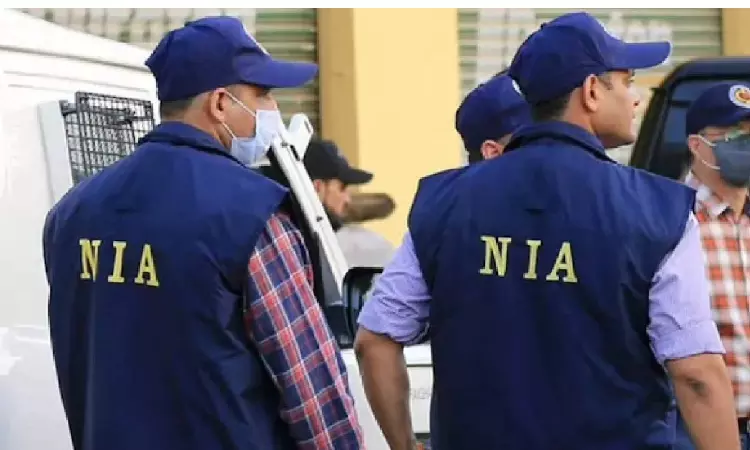NIA raids multiple locations across 7 states in Bengaluru's prison radicalisation case
The raids are underway in Bengaluru and Tamil Nadu, among other states, since this morning, and the places are linked to the suspects, involved in the terror conspiracy connected to the case.

Representative image
NEW DELHI: The National Investigation Agency (NIA) on Tuesday carried out search operations at 17 places across seven states in connection with its ongoing probe into the Bengaluru prison radicalization case.
The raids are underway in Bengaluru and Tamil Nadu, among other states, since this morning, and the places are linked to the suspects, involved in the terror conspiracy connected to the case. On January 12 this year, National Investigation Agency charge-sheeted eight persons, including a life convict and two absconders, in the Bengaluru Lashkar-e-Taiba (LeT) Prison radicalization and 'fidayeen' (suicide) attack conspiracy case.
Among the chargesheeted accused is T Naseer of Kerala's Kannur district, who has been serving a life sentence in Central Prison in Bengaluru since 2013, while Junaid Ahmed, alias JD and Salman Khan are suspected to have fled abroad. The others have been identified as Syed Suhail Khan alias Suhail, Mohammed Umar alias Umar, Zahid Tabrez alias Zahid, Syed Mudassir Pasha and Mohammed Faisal Rabbani alias Sadath.
All eight accused persons have been charge-sheeted under various sections of the Indian Penal Code, the Unlawful Activities (Prevention) Act, the Explosives Substances Act and the Arms Act. The case was originally registered by the Bengaluru City Police on July 18, 2023, following the seizure of arms, ammunition, hand grenades and walkie-talkies from the possession of seven of the accused persons.
The recovery was made while the seven men were gathered in the house of one of the accused. Investigations into the case, which was taken over by the NIA in October 2023, revealed that T. Naseer, who was involved in several blast cases, had come in contact with the other accused while they were all lodged in Bengaluru Prison in 2017. While Salam was in prison in a POCSO case, the others were involved in a murder case. Naseer had managed to get them all shifted to his barracks after a careful assessment of their potential with a view to radicalising and recruiting them into the LeT. He first managed to radicalise and recruit Junaid and Salman to further the activities of the LeT; thereafter, he conspired with Junaid to radicalise and recruit the other accused.
Junaid, following his release from Prison, was believed to have fled abroad after committing some more offences. As per NIA investigations, Junaid began sending funds to his co-accused from abroad to promote LeT activities within and outside the prison. He also conspired with Salman to deliver arms, ammunition, hand grenades and walkie-talkies to the others, as part of a plot to carry out a 'fidayeen' attack and help Naseer escape from police custody en route to court. Junaid also instructed his co-accused to steal used police caps for the attack and to commit arson on government buses as a practice run.
The plot was foiled with the seizure of the arms, etc., in July last year. Further, investigations in the case are continuing in accordance with the provisions of Section 173(8) of the Code of Criminal Procedures (CrPC). The fresh raids in the case were conducted two days after the Ministry of Home Affairs handed over Bengaluru's The Rameshwaram Cafe blast probe to the NIA and the anti-terror agency started a probe into it by re-registering the case.
The blast took place at the cafe on March 1 in Bengaluru's Whitefield area, where several people were injured following an explosion that occurred during the busy lunch hour.



